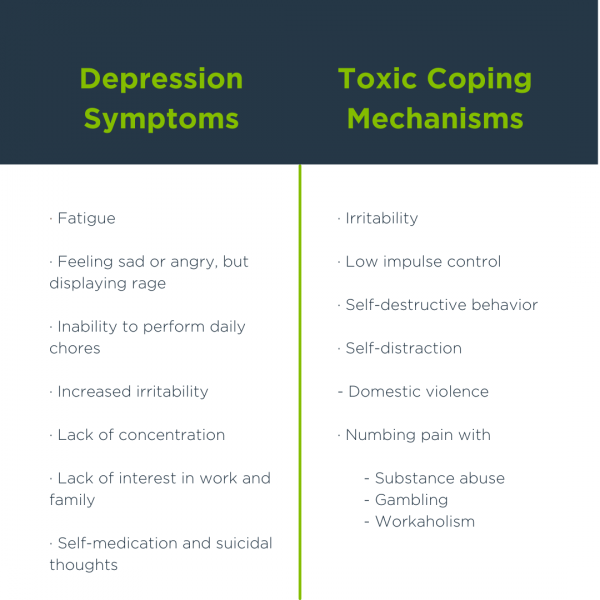Throughout the pandemic mental health has become an increasing concern across our society. According to the CDC, in June 2020, 40% of U.S. adults reported struggling with mental health or substance use.
However, we are focusing on one group particular this month – men. June is Men’s Health Month, and we are exploring the mental health needs of men as a part of their overall health and wellness. With suicide in men on the rise and the stigma associated with men and mental health, it’s important we bring awareness and solutions.
Stigma of Men and Mental Health
Historically, society dictated that boys be raised with what it perceives to be the core values of a man: confidence, strength, success, and composure. Men and boys were told too often:
And showing any emotion or vulnerability was associated with weakness.
However, this type of thinking is outdated and doesn’t speak to the current medical understanding of mental illness.
Although there has been work done around reducing this stigma and expanding opportunities for men who are battling mental health, many men still struggle admitting they may need help.
Men & Mental Health Facts
In order to comprehend the magnitude mental health has on men, it’s important to understand the different mental health problems men face. Below is an infographic that illustrates the bigger picture of men and mental health.

Warning Signs to Look For
Mental Health in men can look different from women and so can their coping mechanisms. According to (Martin, Neighbors, and Griffith, 2013), men manifest emotional pain with the following symptoms:

What You Can Do
What men need to realize is that they are not alone and there is a community waiting to help them. Here are some ways you can help break the stigma and bring awareness to mental health.
SaferCare Texas and Mental Health
At Safercare Texas, our mission is to eliminate preventable harm. Mental health is becoming a topic we are focusing our efforts and resources on. Fortunately, mental health can be treated and preventable. We are currently hosting QPR (Question, Persuade, Refer) trainings to teach steps anyone can use to help prevent suicide. Contact us today to learn more about our trainings. You can be a part of the solution of reducing suicidal behaviors.
Author: John Sims, Director of SaferCare Texas